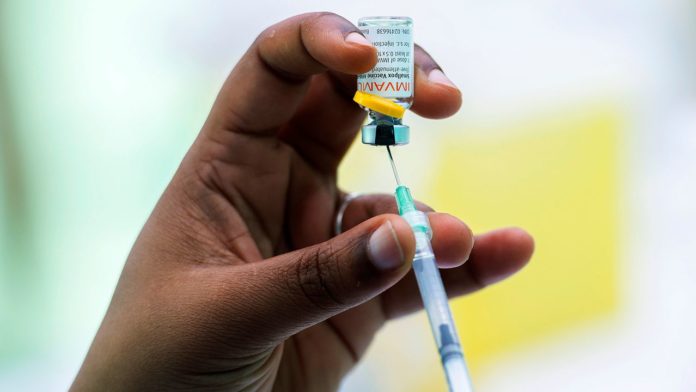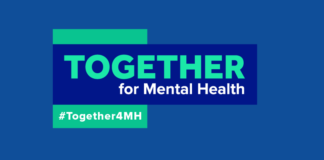
The majority of monkeypox cases identified in the U.S. to date have been among men who have had sexual or close contact with other men.
To acknowledge that data point isn’t a problem.
To misuse it, on the other hand, could be.
“I don’t think that we have to be secretive in the impact of the virus currently, but I think we also have to be strategic and intentional about the messaging and the ways in which we message and the language we use when messaging about this virus,” said Torrian Baskerville, director of HIV and health equity for the Human Rights Campaign.
“There are ways in which we can be truthful and honest without being harmful and stigmatizing.”
The term “stigmatizing” refers to creating a negative label, attitude, or behavior toward someone based on a characteristic or condition. Baskerville said he’s already seen examples since the start of the monkeypox outbreak, including referring to the virus as a gay man’s disease, or suggestions by some community leaders that cases of monkeypox in children are evidence of pedophilia.
When HIV became an epidemic in the 1980s, it was largely found in gay men, which led to the use of terms like “the gay man’s disease,” “gay-related immune deficiency,” and even “gay cancer.” People also used language like “are you clean?” when referencing HIV, which suggested people with the virus were dirty, Baskerville explained.
That stigma led to feelings of shame, fear, isolation and despair. It also painted a false sense of security for people who didn’t identify as gay.
Decades later, health officials say it’s important not to forget those lessons.
“We always have to be aware of, and be cautious of, and do everything we can to prevent that stigma,” said Dr. Matthew Sims, an infectious disease specialist at Beaumont Health. “We saw that with HIV, but we know the lesson from HIV, it gets out of that population.”
Related: Monkeypox cases in Michigan climb 47% in a week
Monkeypox is a viral disease that may cause a rash that looks like pimples or blisters, among other symptoms. It is typically spread through close contact by an infected person, or through touching shared objects, fabrics or surfaces. It’s not, however, considered a sexually transmitted infection.
It’s true that gay and bisexual men makeup the vast majority of reported cases in the U.S. to date. Last month, the U.S. Centers for Disease Control and Prevention (CDC) analyzed U.S. case reports in which identifying information was available. Of the 1,195 cases it evaluated, all before July 27, about 99% involved men. Among them, 94% reported male-to-male sexual or close intimate contact during the three weeks before symptom onset.
Sims said it’s not clear how the first cases reached the U.S. and other countries where the virus isn’t endemic. But there’s nothing stopping it from spreading outside that population, given that it can be transmitted through non-sexual contact as well.
“That’s just because it’s where it has spread,” Sims said. “As it evolves and moves forward, who knows where it will go. But the hope is it gets more and more controlled.”
Federal health officials have offered public health guidance as it relates to monkeypox. They suggest keeping messaging fact-based while being careful to avoid marginalizing groups who may be at increased risk. Messaging should include how the virus can spread, and should encourage seeking health care if experiencing monkeypox-like symptoms.
It’s also important to emphasis that anyone can get monkeypox, and to promote it as a public health concern for all.
“Public health efforts should prioritize gay, bisexual, and other men who have sex with men, who are currently disproportionately affected, for prevention and testing, while addressing equity, minimizing stigma, and maintaining vigilance for transmission in other populations,” reads an excerpt from the CDC.
As of Thursday, Aug. 25, Michigan had identified 165 cases across 15 counties, led by Wayne with 72 cases. The state ranked 17th in reported cases nationally, and noted a higher-than-average increase over the last week.
Across the country, there have been 16,926 cases and zero deaths from monkeypox. Globally, the total has surpassed 46,724 cases across 98 locations, including 91 that have not historically reported the disease.
As monkeypox continues to spread, Baskerville said it’ll be important for public health leaders to work with individual communities in coming up with messaging that is both effective and non-harmful.
“I think there have definitely been missteps and some hiccups when it comes to the messaging and language coming from federal, state and local officials,” he said. “That’s why it’s important for those entities to partner with community-based organizations and other advocates to ensure that language has been thought through and are intentional to not cause harm.”
If you believe you’ve been exposed to the virus and/or start experiencing symptoms, contact a health care provider or your local health department. For the latest updates on the 2022 monkeypox outbreak, visit the CDC website or Michigan’s monkeypox web page.
Read more on MLive:
9 Michigan counties – including 3 big ones – still at CDC mask-suggested COVID levels
First suspected human-to-dog monkeypox transmission reported in Europe
Moderna claims Pfizer copied its mRNA tech for COVID-19 vaccine
Michigan State Police halt blood tests for marijuana over accuracy concerns








